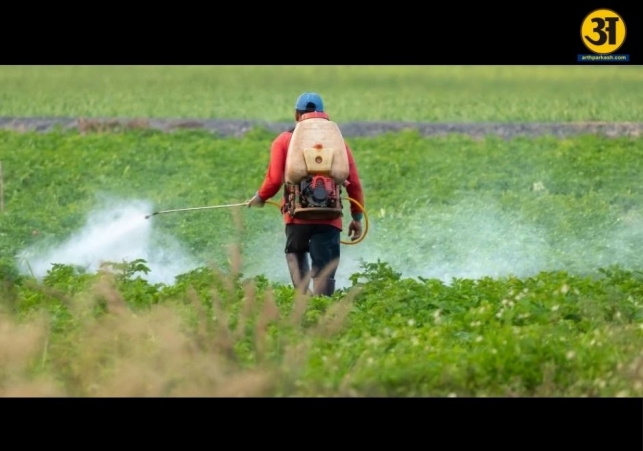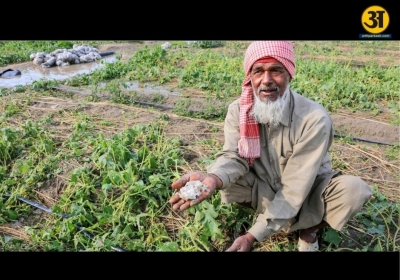
Are pesticides in food harmful? A look at the risks and safety
Hidden dangers on your plate: Are pesticides in food putting your health at risk?
- By Gurmehar --
- Friday, 04 Jul, 2025
Pesticides are chemicals used by farmers to protect crops from insects, weeds, and fungi. They help increase crop production but can leave small residues on the food we eat. This article explores how pesticides affect health, who is at risk, and whether organic food is a safer choice.
What are pesticides and why are they used?
Pesticides include herbicides (used to kill weeds), insecticides (to kill insects), and fungicides (to stop fungal growth). Common examples used in the United States include:
-
Glyphosate – kills weeds and grasses
-
Atrazine – controls broadleaf weeds
-
2,4-D – a weed killer
-
Dichloropropene – used to kill roundworms in the soil
These chemicals help protect crops, but small amounts may stay on fruits and vegetables as residue.
Are Pesticides harmful to humans?
Pesticides can be toxic, depending on the type, amount, and how a person is exposed—whether by swallowing, inhaling, or skin contact. According to the World Health Organization (WHO), exposure to large amounts of pesticides may affect reproduction or even increase cancer risk. Insecticides are usually more harmful than herbicides.
Mild symptoms of pesticide poisoning can include:
-
Headache, dizziness, nausea, diarrhea, and skin or throat irritation
Severe symptoms may include:
-
Difficulty breathing, chemical burns, unconsciousness, and rapid heartbeat
If someone is exposed to a large amount, they should immediately contact Poison Control at 1-800-222-1222.
How are people exposed?
People may consume small pesticide residues through food and water. Pesticides can run off fields into rivers and groundwater. Washing produce helps, but some residues may remain.
The Environmental Protection Agency (EPA) sets safety limits for pesticide levels in food. If a product has unsafe levels, it can be removed from the market. The Food Quality Protection Act requires strict testing to protect people—especially infants and children.
Who is most at risk?
-
Farm workers who spray or handle pesticides face the most exposure.
-
They should wear protective gear and have regular medical check-ups.
-
Pregnant or breastfeeding women working with pesticides should consult a doctor.
ALSO READ: Plant-Powered: Unveiling the Benefits of a Vegan Diet
ALSO READ: Microplastics in food packaging pose hidden health risks, studies warn
Which foods have the most residue?
According to the U.S. Department of Agriculture (USDA) and the Environmental Working Group (EWG), produce like spinach, strawberries, kale, and grapes often contain higher pesticide levels, though still within safety limits. Fruits and vegetables like avocados, onions, and sweetcorn have the lowest levels.
Is organic food safer?
Organic foods are grown without synthetic pesticides or fertilizers. They are also non-GMO and farmed using methods that protect soil and water. However, organic produce is often more expensive, and studies show there may be little difference in nutrient content between organic and non-organic options.
Pesticides help grow more food but can leave small residues. These are usually considered safe, thanks to government testing and regulations. People who handle pesticides directly are most at risk. Washing fruits and vegetables and choosing organic options when possible can help reduce exposure.





